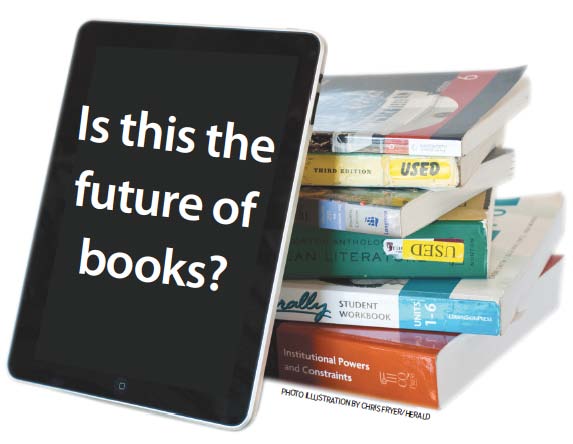Digital resources becoming more prevalent in WKU classrooms
October 22, 2010
Winchester freshman Joshua Fairchild takes his iPad everywhere.
“I have it on me all the time and use it around three hours each day,” Fairchild said.
Fairchild isn’t alone.
Campuses across the country are becoming more technologically savvy, with students leading the way, but professors aren’t far behind with the adoption of electronic resources.
This week, McGraw-Hill Higher Education showcased Create, a custom e-book publishing program, according to a McGraw-Hill press release.
With Create, professors may produce their own e-books by selecting the content they want to provide to students. The content is selected from a library of more than 50,000 resources.
Richard Callahan, executive-in-residence for the accounting department, said that if he and other professors were able to customize an e-book for a class, more would be open to the idea.
Introductory-level accounting, chemistry, Spanish and math professors have begun incorporating electronic or web-based components in the classroom at WKU, said Forrest Halford, director of educational material at the WKU Store.
The components may contain resources not offered in the traditional textbook but primarily used for homework, Halford said.
Callahan said he and others who teach Accounting 200 use a web component called WileyPLUS in conjunction with lecture material.
WileyPLUS must be used by Accounting 200 students to complete their homework, Callahan said.
“I think students like it because they can do it anywhere,” Callahan said. “They can do it at home or school, or anywhere they can get access to a computer.”
Callahan said he still uses a tangible textbook in class, though an electronic, or e-book, version is offered online through WileyPLUS.
He recommends that students still bring their textbook because he refers to it quite a bit during class.
In the future, all students may only buy e-books, but Callahan said he would prefer that to happen when all students have an e-reader, rather than a “distracting” laptop.
“E-readers are lighter weight and in some ways probably better than a laptop as far as reading a book,” Callahan said. “I think that if every student had something like that, that would do away with the need for the textbook.”
Fairchild said he would rather buy e-books for his iPad than a traditional textbook.
“It suits me better, and I wouldn’t have to carry heavy books around,” he said.













